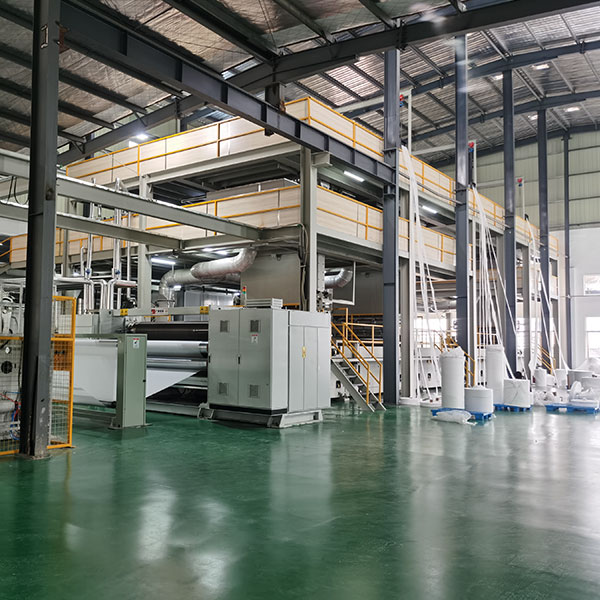In the realm of nonwoven fabric production, versatility reigns supreme. Manufacturers seek machinery that can seamlessly adapt to a myriad of raw materials, enabling them to cater to diverse market demands with precision and efficiency. Among the stalwarts of nonwoven fabric production stands the SSS (Triple Beam Spunbond) nonwoven fabric machine, celebrated for its ability to support various grades and qualities of polypropylene granule fibers.
Polypropylene, a thermoplastic polymer derived from propylene monomers, serves as the primary raw material in the production of nonwoven fabrics. Its popularity stems from its exceptional properties, including durability, chemical resistance, and affordability. However, not all polypropylene granule fibers are created equal. They vary in characteristics such as melt flow rate (MFR), density, and molecular weight distribution, necessitating machinery that can accommodate this diversity.
The resounding answer is yes, and here's why:
Adaptability Through Design: SSS nonwoven fabric machines are engineered with versatility in mind. These cutting-edge machines boast advanced technology and customizable features that enable them to process a wide spectrum of polypropylene granule fibers. From low MFR fibers suitable for lightweight applications to high MFR fibers ideal for heavy-duty uses, the SSS machine can handle them all with finesse.

Precision Parameter Control: Central to the versatility of SSS nonwoven fabric machines is their ability to fine-tune process parameters. Operators have control over variables such as temperature, pressure, and line speed, allowing them to optimize production conditions according to the specific requirements of the polypropylene granule fibers being used. This precision parameter control ensures consistent quality and performance across a diverse range of materials.
Quality Assurance Mechanisms: Another hallmark of SSS nonwoven fabric machines is their robust quality assurance mechanisms. These machines are equipped with sensors, monitors, and feedback systems that continuously assess and adjust production parameters to maintain optimal performance. Whether processing high-grade or low-grade polypropylene granule fibers, the SSS machine upholds stringent quality standards, delivering nonwoven fabrics of exceptional quality and uniformity.
Market Flexibility: By supporting various grades and qualities of polypropylene granule fibers, SSS nonwoven fabric machines empower manufacturers to tap into a multitude of market opportunities. Whether catering to the healthcare industry with medical-grade fabrics, the automotive sector with durable upholstery materials, or the agriculture sector with breathable crop covers, manufacturers can diversify their product offerings and capture niche markets with ease.
The SSS nonwoven fabric machine stands as a paragon of versatility in the realm of nonwoven fabric production. Its ability to support various grades and qualities of polypropylene granule fibers underscores its adaptability and efficacy in meeting the dynamic needs of the industry. Whether tasked with producing lightweight spunbond fabrics or heavyweight spunmelt fabrics, the SSS machine rises to the occasion, embodying the essence of versatility and innovation in nonwoven fabric manufacturing.







 English
English 中文简体
中文简体 русский
русский عربى
عربى





